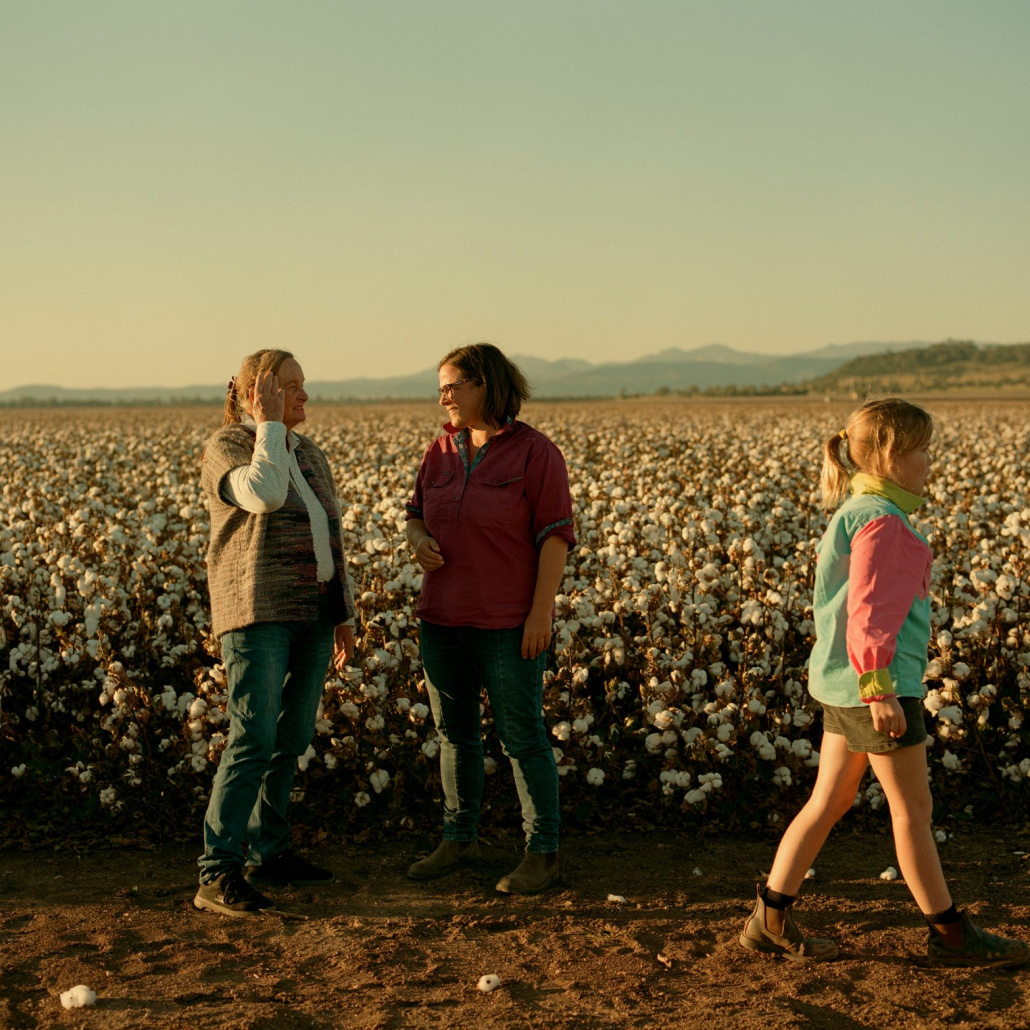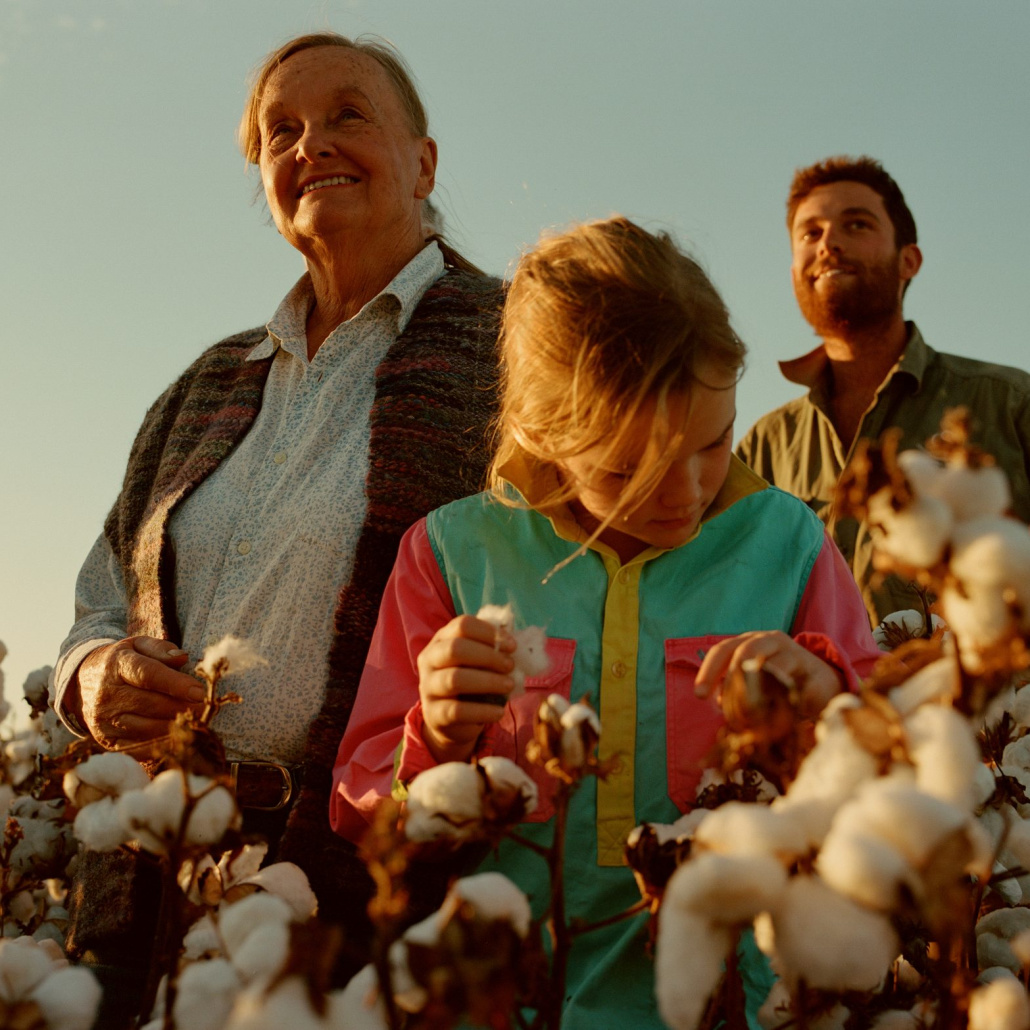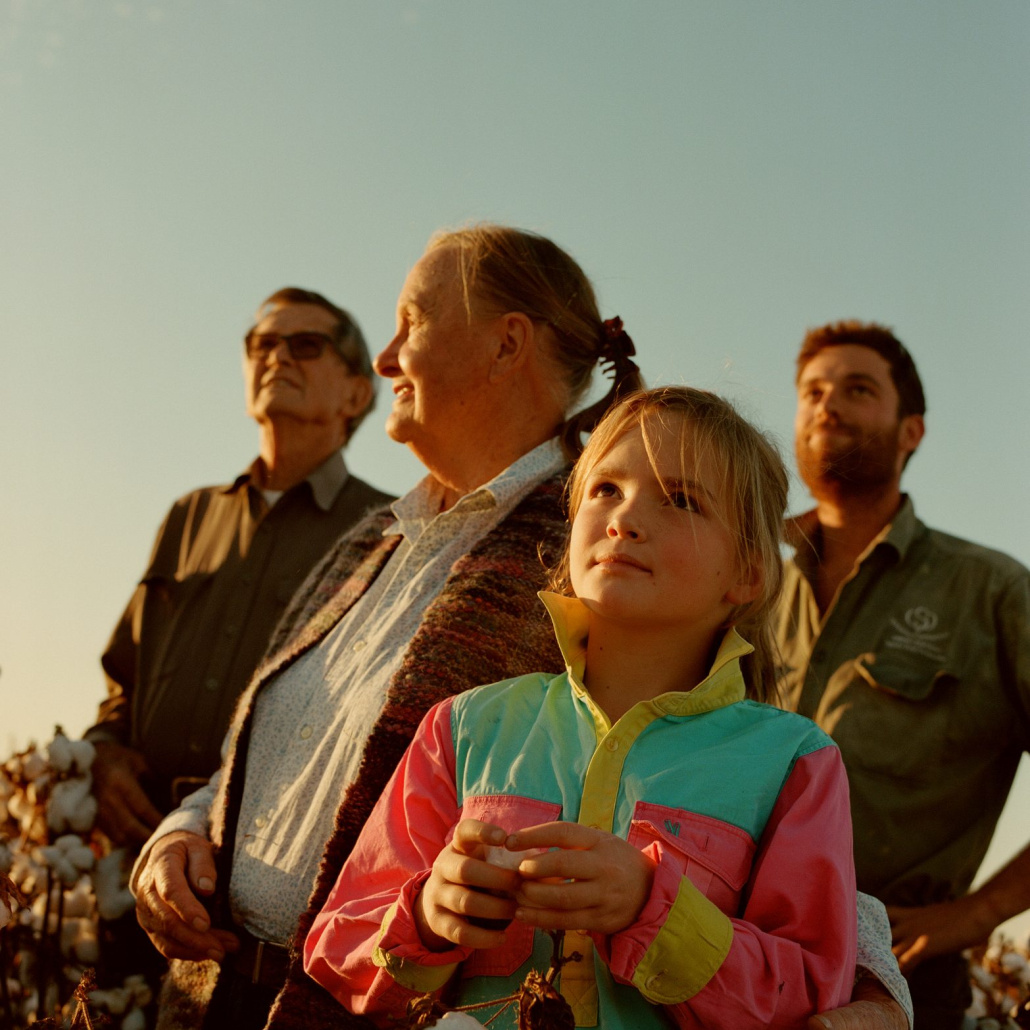
The Watsons are the proud owners of Kilmarnock and Merriendi, cotton farms located in Boggabri northwest of NSW, and the second farming family within the Country Road x Landcare Australia Biodiversity Project fold.
- Culture
Three generations of female farmers on Biodiversity
How The Watson Family is working to restore our natural ecosystems
In partnership with Country Road
By Felicity Bonello
By now we’re all aware of climate change, but there’s another key environmental issue facing our world today; the biodiversity crisis. Biodiversity is integral to our survival on earth, with every species playing an important role in helping nature thrive. While there’s a clear path for businesses and individuals to reduce their carbon impact, with biodiversity it’s not as well-defined. Fortunately, companies like Country Road are paving the way.
In October 2020, Country Road proudly partnered with Landcare Australia to support the regeneration of Australian farmlands, with a focus on increasing biodiversity in cotton growing regions. By assisting local cotton farmers, this partnership, which aims to protect soil health, provide natural habitats for threatened species, and improve water quality across river systems, will enrich Australia’s biodiversity.
Meet the Watsons
The Watsons are the proud owners of Kilmarnock and Merriendi, cotton farms located in Boggabri northwest of NSW, and the second farming family within the Country Road x Landcare Australia Biodiversity Project fold. For many years this family, which includes three generations of female farmers, has actively worked against biodiversity loss.

“My father bought Kilmarnock in 1965,” explains Cotton Grower Andrew Watson. “We’ve done plantings on both farms, but we’re concentrating our efforts at Merriendi (which we recently acquired) now because historically it hasn’t had as much care put into it.”
This project will support biodiversity and sustainable agriculture for 3.6 km of riparian habitat along the Namoi River on Merriendi. It’s here that the banks are bare and high river flow has caused turbidity in the river. By revegetating fifteen hectares with a variety of native species including local grasses, shrubs, understory, and canopy species within a broadacre cotton landscape, the Watsons will increase the ecology along the riverbank, improve biodiversity, drought resilience, as well as sustainable agricultural outcomes.
“My vision for this new property would be to get it to a place where it’s much like our home property where we’ve solved a lot of the problems,” says Robyn, (Andrew’s mother, and Kilmarnock’s matriarch).
“We’ve seen the benefits of doing this on Kilmarnock and now we want to continue biodiversity development on Merriendi. I think that if we can get wildlife corridors going here and native trees planted, this property can also become a wonderful area for biodiversity. It’s not an easy process but we’ve been learning for over 40 years.”


Biodiversity and Sustainable Farming in Action
Like so many farms, the Watson’s have experienced droughts, floods, bushfires, and mouse plagues over the years, however, through tirelessly planning and planting, in many instances this family of farmers has been able to minimise the impact of nature’s influence.
“A couple of years ago we had a big bushfire through here; all along the river I’d planted Fragmighties which are a reed type plant; the green actually protected the bank, and the rest of the property. Now on the new farm we’ve planted Fragmighties there to get that bank regenerated,” says Robyn.
“We saw a really quick regeneration of those riverbanks where we had all those trees,” adds Andrew. “The advantages to planting and nurturing biodiversity just keep popping up. We might start something for one reason but then five other good reasons come out of it as we gain understanding. If we can have tree lines linking riverbank environments and remnant vegetation elsewhere on the farm, that will act as a highway for birds, microbats, and beneficial insects to move amongst the landscape and our crops. They’ll be able to prey on the insects we don’t want, which to me is a fantastic outcome,” says Andrew.
For the Watsons, farming sustainably is the only way to grow. “After being on the one farm for so long, if we hadn’t been farming sustainably, we wouldn’t be here now,” says Robyn. My idea of sustainability is that we must leave it better than how we got it. We must do things for the environment to make this farm the best it can be for the next generation.”

Biodiversity is important to ensure the Watson’s farm works as a system. And like any property, it’s not always straightforward.
“We’ve always been prepared to showcase our place, warts and all,” says Andrew, “to highlight why it’s hard, which is important because this is not an easy process. We’ve tried over the last 20 years to show how we can improve the environmental ecosystem service of these insects, birds, and bats. And we’ve quantified it in some ways, but it is challenging. Additionally, we’re doing things like releasing beneficial insects via drone and aeroplane into our crops to control the pests that are in our tree line. Last week we released some parasitic wasps in biodegradable golf ball capsules by aeroplane into a crop of canola; it looks space age but it’s pretty cool, and we can prove that initiatives like this are working.”
How consumers can support the biodiversity crisis
From the coast to the bush, the Australian landscape is home to a unique variety of native flora and fauna, which breathe life into the diverse backdrops we call home. Understanding what you’re purchasing and where it’s derived from is key. “Often, it’s coming out and having a look at how things are out in nature,” says Heike. “But where that’s not possible, building an understanding of how the supply chain works from here at the farm down to the consumer will help.”
The Australian cotton industry has played a supporting role in the partnership between Country Road and Landcare Australia by identifying farmers to participate in the program and working with Landcare Australia alongside farmers to develop on-ground projects that deliver benefits to the natural environment.
For those ready to add to cart, simply purchase a Verified Australian Cotton Heritage Sweat to support the work of families like the Watsons, who are at the grassroots of biodiversity across our country.
RELATED: Sam Elsom is changing the world one seaweed plant at a time
RELATED: These are the questions my friends ask about sustainable fashion
